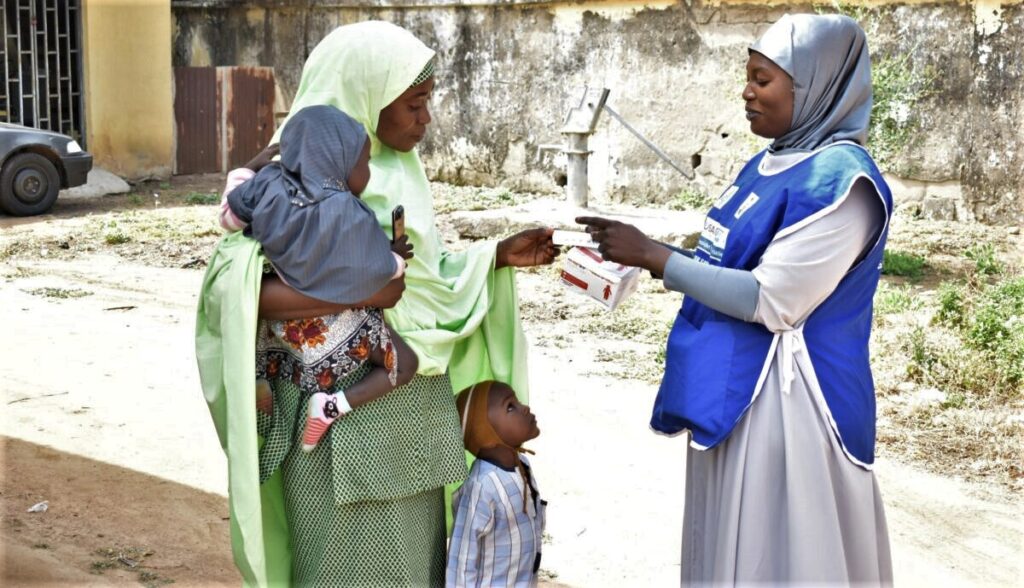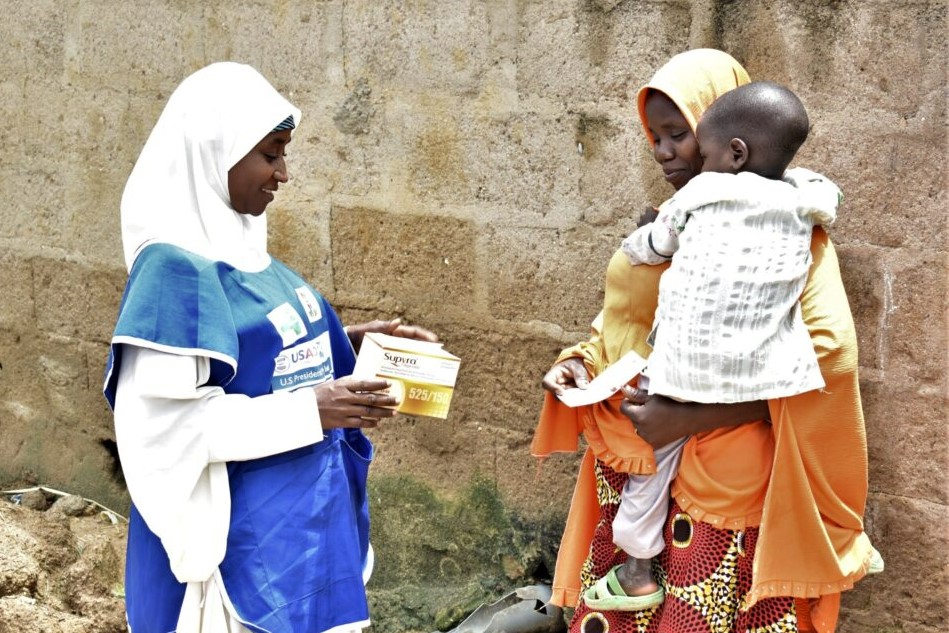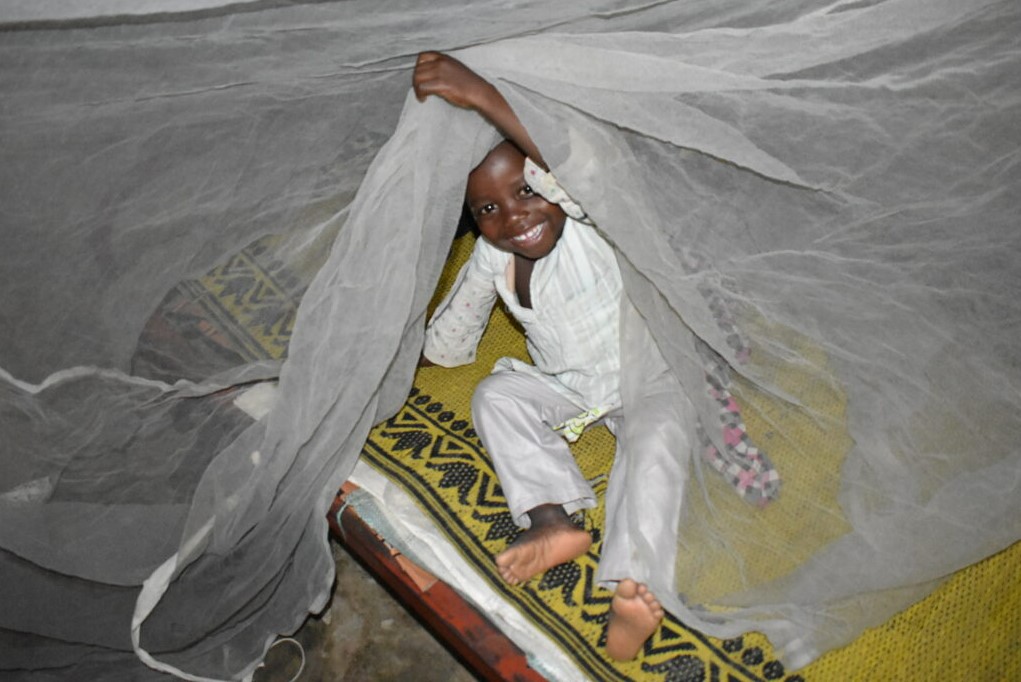A Mother’s Dream Fulfilled: Preventive Medication Campaign Protects Nigerian Children from Malaria
A Mother’s Dream Fulfilled: Preventive Medication Campaign Protects Nigerian Children from Malaria
By Sarah Hladik
This story first appeared on the PMI.gov website.

MSH is the lead implementing partner of the U.S. President’s Malaria Initiative for States (PMI-S) project, USAID Nigeria and PMI’s flagship project to reduce malaria mortality and morbidity in Nigeria. The project supports the Government of Nigeria through its agencies at the federal, state, local government area, and community levels to improve the quality of and access to services for the prevention and management of malaria and its complications.
Saratu Babangida knows first-hand the devastating effects of malaria on children. Every time one of her two young children fell sick with the disease, she braced herself for the tough days ahead when the child would become weak and unable to go to school or play. Saratu would miss many work days on the farm to take her sick child to the clinic and nurse them back to health.
But the good news is that Saratu and her children have been protected from this ordeal for the last two years. Saratu’s children received medicine during the annual seasonal malaria chemoprevention campaigns in 2021 and 2022 supported by the U.S. President’s Malaria Initiative (PMI). During the campaigns, children under five years of age received a three-day treatment of preventive medicine every month throughout the peak malaria transmission season to protect them from the disease.
“Ever since my children started receiving malaria preventive medications, they no longer get fevers from malaria. The medicine is good! I now tell other mothers about this miracle,” Saratu said.
Saratu and her family live in a farming community of 8,000 people in the north-west state of Zamfara in Nigeria. Clashes between herders and farmers have led to conflicts that regularly shut down markets and affect the sale of farm produce, worsening an already insecure financial situation for the family. When her children are sick with malaria, the time and resources required to seek health care further stretch her family’s meagre finances. Overall, households in Africa lose up to 25 percent of income due to the disease.

Saratu was happy to learn on the radio that the Zamfara State government worked with PMI to train some members of her community as Community Drug Distributors (CDDs). The trained CDDs would be visiting her community to administer malaria preventive medications to children. The CDDs provide coverage for all, farmers and herders alike, uniting the community in the fight against malaria.
Saratu not only wants her children to enjoy the gift of a healthy childhood without debilitating sickness and the opportunity to grow into healthy and thriving adults, she also wants to be able to provide a consistent livelihood to her family through her work on the farm. She welcomed the CDDs when they visited her house. They provided her children with the first day of preventive medicine and gave Saratu instructions on how to give the remaining two days of medicine to ensure the full treatment was completed. The CDDs returned each month to provide the required medicine to cover the four peak months of the malaria transmission season. In addition to the preventive medicines, Saratu also ensures that her children sleep under insecticide-treated bed nets for added protection.
PMI worked with the Zamfara State Malaria Elimination Program and State Primary Health Care Board to train 5,000 CDDs and more than 1,000 supervisors selected from communities in Zamfara State.

Hauwa Muhammed is one of the CDDs trained by PMI to administer the preventive medications to eligible children. “Being a community drug distributor can be challenging and satisfying at the same time,” she says of her role. The challenge, according to Hauwa, is the conflict in Zamfara State, which has led to the migration of many families to farther communities and has made household visits difficult. “But the satisfying part is that caregivers look forward to our visit to receive medication for their children,” Hauwa added.
From July to October 2022, CDDs visited homes, like Saratu’s, to administer malaria preventive medicines to children. The campaign reached more than 1.3 million children. In 2022, globally, PMI reached more than 10 million children with medicine to prevent malaria.
PMI supports the seasonal preventive medicine distribution program for children in eight states in Nigeria, contributing to the National Malaria Elimination Program’s vision of achieving a malaria-free country.
For Saratu, victory against malaria in her family is possible: “Thanks to PMI, my children are free from malaria. They can live as healthy children and do well as adults.”